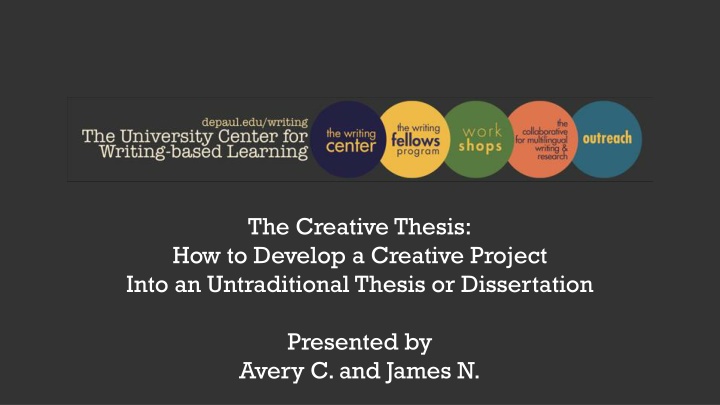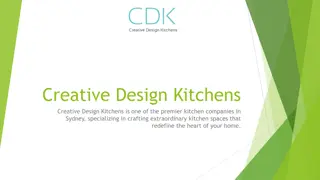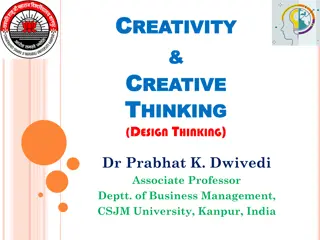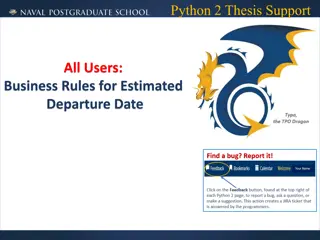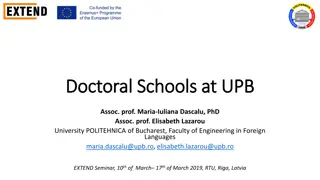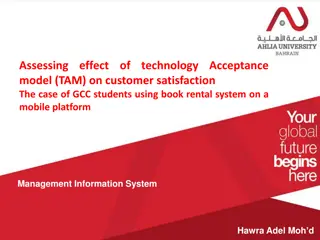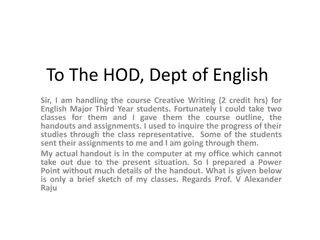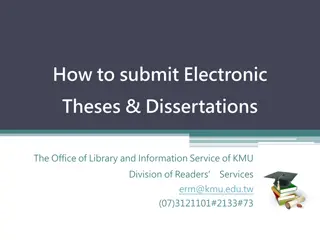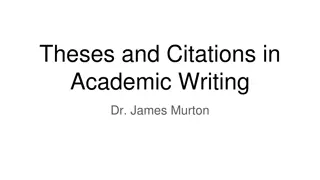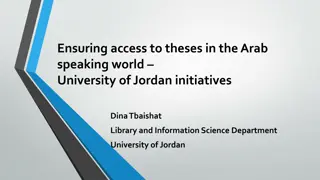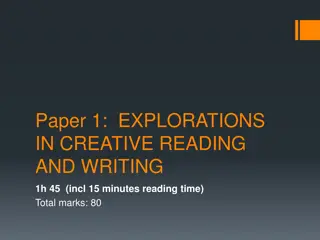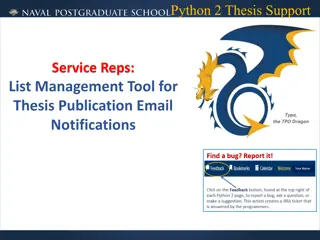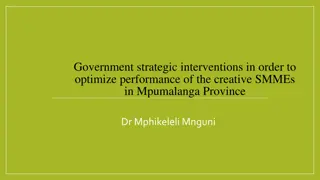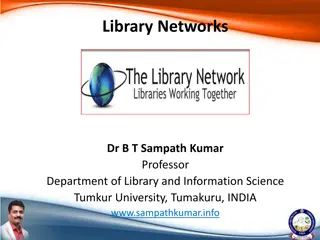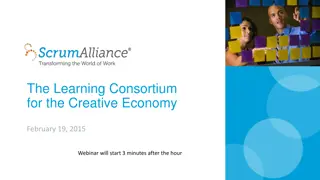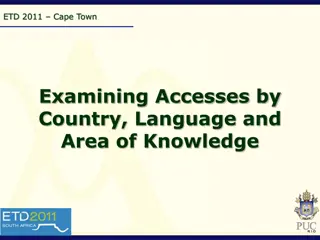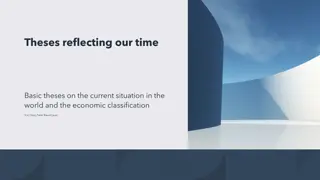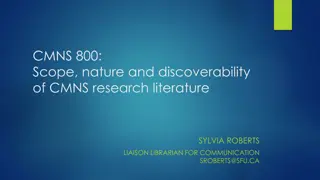Developing Untraditional Theses: A Creative Approach
Realm of creative theses, where projects diverge from conventional forms to make a unique scholarly impact. Learn how to blend critical writing with creative endeavors for a comprehensive thesis that pushes boundaries and contributes fresh insights to your field. Get expert tips on embracing creativity, structuring your project, and engaging with advisors to elevate your work. Unleash your creativity and craft a thesis that challenges norms and sparks innovation.
Download Presentation

Please find below an Image/Link to download the presentation.
The content on the website is provided AS IS for your information and personal use only. It may not be sold, licensed, or shared on other websites without obtaining consent from the author.If you encounter any issues during the download, it is possible that the publisher has removed the file from their server.
You are allowed to download the files provided on this website for personal or commercial use, subject to the condition that they are used lawfully. All files are the property of their respective owners.
The content on the website is provided AS IS for your information and personal use only. It may not be sold, licensed, or shared on other websites without obtaining consent from the author.
E N D
Presentation Transcript
The Creative Thesis: How to Develop a Creative Project Into an Untraditional Thesis or Dissertation Presented by Avery C. and James N.
The Creative Thesis Creative Theses: Creative theses are projects that take on forms other than the standard ones for critical disciplinary or interdisciplinary work in the humanities. A creative thesis project might mean writing fiction or poetry; working in video and or other visual media; producing a musical composition; or making some other non-traditional intervention in a humanistic conversation.
The Creative Thesis If you choose to do a creative project you might also produce a piece of critical writing to accompany your thesis. The critical accompaniment need not take the form of a standard essay, but it should offer an engaged and thoughtful response to your creative work. The critical component might, for example, take the form of a piece of criticism appropriate your creative field such as a review essay or a book introduction. You should discuss what form your critical essay might take with your preceptor and with your advisor as well.
Examiners Guide for Creative Theses Does it offer an original contribution to knowledge in the field? Does the thesis as a whole satisfy external needs, as well as personal outcomes? Meaning, does it advance knowledge not just practice? Is the work as a whole scholarly (critically questioning what you re reading and writing), coherent, and rigorous? Is there a thorough literature review that engages key and seminal works, and traces the line of thought across the topic area? Is there a thorough contextual review that accounts for key words in the same art form and topic area? Does the project show innovation, a line of argument, and/or technical expertise? Is there a synthesis between the project and the essay?
Tips From Avery As long as you can defend your choices, be as creative as you d like. Keep a journal of your project. Use traditional thesis methods. Ex) Do a lot of research on your topic/themes. Even if it s not required, consider writing a critical analysis of your project. If you re able to have more than one thesis advisor, try to have one who s a specialist in your creative field and one in your academic field. Embrace creativity in all aspects of your project. Join a writing group. Creative projects go much better when you can have constant, informal feedback. Make an outline, and keep it updated. Always keep in mind what you re trying to prove and how to weave that into your work. You re not doing this just for you. Your thesis must have a specific purpose.
Tips From James Decide if you want your project to represent your current position or the process of evolution you underwent to reach that position. (Roadmap or Destination?) It helps to have a physical copy when sequencing. Maintain frequent contact with advisor. Be honest about capabilities. (Marathon or Series of Sprints?) Reward yourself for adhering to schedule. Avoid tunnel vision as much as possible. (Maintain perspective.)
Translating These Tips to Your Project Take 5 minutes, and brainstorm the following: Which of these tips best apply to you? What kind of worker are you? How can you best take advantage of your own style? Write out a potential schedule for your project on the calendars provided. Discuss with group.
